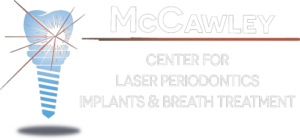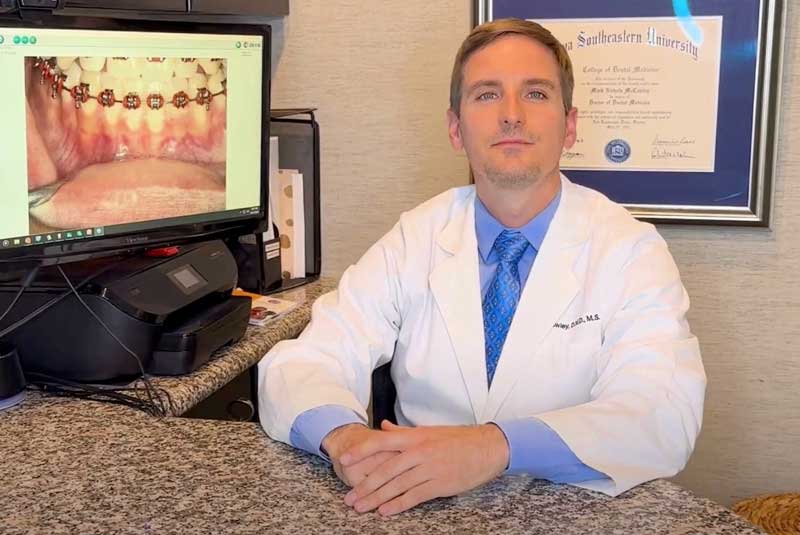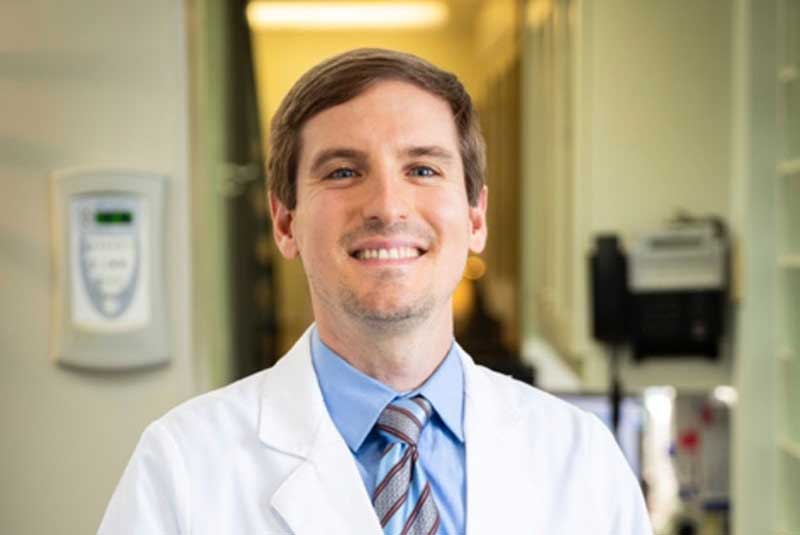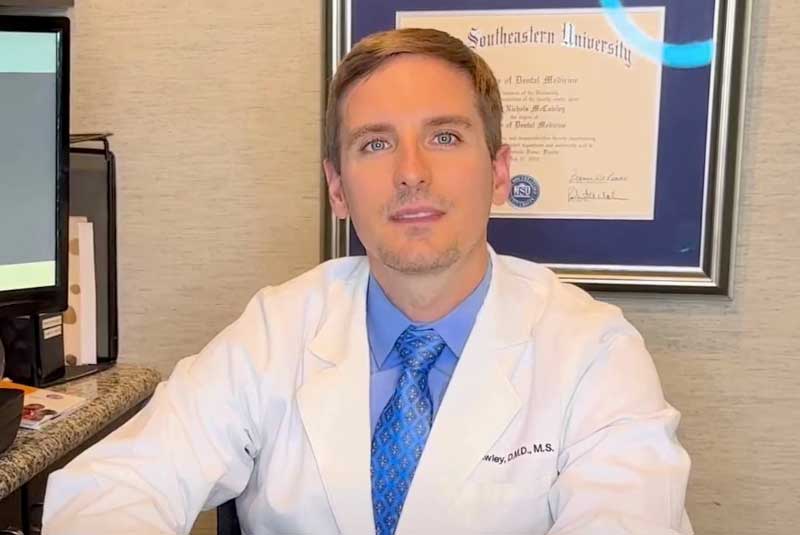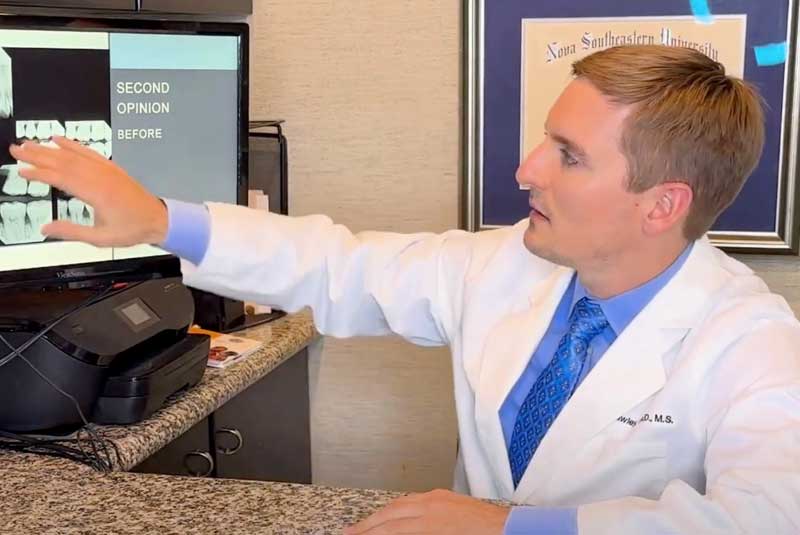Antimicrobial therapy allows us to eliminate harmful microorganisms using carefully selected treatments and medications tailored to your specific condition.
This is not a one-size-fits-all approach. Every infection is unique. That is why we rely on diagnostic insight and individualized care to improve outcomes and protect long-term health.
We offer antimicrobial therapy at our periodontal office in Fort Lauderdale, FL.
Antimicrobial therapy uses treatments and medications to stop or kill the microorganisms that cause infection.
These medications are called antimicrobial agents, and they work against a wide variety of organisms.
Antimicrobials are classified based on the type of pathogen they are designed to target:
Each antimicrobial drug is selected based on the type of infection, the severity of the condition, and the patient’s medical history.
At the McCawley Center for Laser Periodontics & Implants, we use diagnostic testing to guide the best antimicrobial treatment for each patient, minimizing unnecessary drug use and improving outcomes.
The oral cavity is home to more than 500 bacterial species, along with protozoan parasites, yeasts, and viruses. Periodontitis is a polymicrobial infection, meaning it often involves multiple harmful organisms at once.
Researchers have identified 46 common pathogen combinations in periodontal disease. Because of this complexity, systemic antibiotics are often used alongside laser and mechanical debridement to improve results in severe or advanced cases.
We may recommend antimicrobial agents to help with the treatment of:
For patients with systemic risk factors, short-term antimicrobial therapy may also be used as part of infection control before surgery or critical care.
We tailor treatment based on your specific diagnosis, but it is helpful to understand the two main approaches in antimicrobial care:
By identifying the specific pathogens involved in periodontal disease, we can choose a narrow-spectrum antimicrobial drug whenever possible. This approach helps reduce side effects and lowers the risk of antimicrobial resistance.
Not all antimicrobial drugs work the same way. Some are broad-spectrum, meaning they fight many different types of bacteria. Others are narrow-spectrum, designed to target specific bacterial strains.
Taking the wrong medication, stopping it too soon, or skipping doses can lead to antibiotic resistance—a growing problem where bacteria adapt and become harder to treat.
We use diagnostic testing to choose the most effective antimicrobial treatment for your unique infection. This allows us to carefully select the right antibiotic therapy, dosage, and duration of treatment for every patient. Follow your treatment plan exactly as prescribed for long-term success and to avoid complications.
We follow a proven strategy to detect and eliminate infectious agents contributing to gum disease:
1 Microscopic diagnosis: A live bacterial sample is examined under a phase-contrast microscope. In some cases, we may send it to an outside lab for culture testing.
2 Targeted antimicrobial treatment: Based on the diagnostic findings, we select the most effective antimicrobial drug, which may include bactericidal agents, antifungals, antivirals, or antiparasitics.
4 Source control and monitoring: We identify and address possible reinfection sources and assess healing during follow-up visits over several months. Patient education and home care are essential for long-term success.
Expertise You Can Trust: We have more experience using bacterial diagnostics and antimicrobial therapy than any periodontal office in the country. Our team has analyzed over 500,000 microscopic slides, giving us unmatched insight into complex oral infections.
Advanced Diagnostics: Our use of phase-contrast microscopy and lab culture testing allows us to make precise and personalized treatment decisions.
Expertise You Can Trust: We have more experience using bacterial diagnostics and antimicrobial therapy than any periodontal office in the country. Our team has analyzed over 500,000 microscopic slides, giving us unmatched insight into complex oral infections.
Advanced Diagnostics: Our use of phase-contrast microscopy and lab culture testing allows us to make precise and personalized treatment decisions.
It helps your body fight infection by killing or stopping the growth of harmful microorganisms like bacteria, fungi, or parasites. In periodontics, it is often used to reduce and often eliminate the dangerous bacteria under the gums and support healing.
Antimicrobial therapy is a broader term. It includes laser treatment, tongue disinfection, antibiotics, but also medications for fungal, parasitic, or viral infections when needed.
The goal is to eliminate the infection at its source, protect your oral and overall health, and prevent further damage to your gums, teeth, and bone.
Not always. In many cases, deep cleaning or laser treatment is enough. Antibiotics may be recommended for more severe infections, or when specific bacteria are found during diagnostic testing.
Antimicrobial agents, combined with laser treatment, can help patients avoid more invasive procedures and often cure the infection.
No. Most therapy is short-term and taken for just a few days to a couple of weeks. We prescribe the shortest effective duration of treatment to avoid resistance and side effects.
Yes. We carefully select medications based on your medical history, allergies, and diagnostic results. Our goal is to eliminate the infection safely, with the fewest possible side effects.
If you have been diagnosed with gum disease or are experiencing signs of an oral infection, antimicrobial therapy may help you avoid flap and bone surgery and preserve your natural teeth.
Dr. Tom McCawley and Dr. Mark McCawley bring over 50 years of combined experience in managing complex infections with science-backed, minimally invasive care.
To book an appointment at our periodontal office in Fort Lauderdale, FL, call (954) 807-4829 or visit us at 800 East Broward Blvd #706 Fort Lauderdale, FL.
